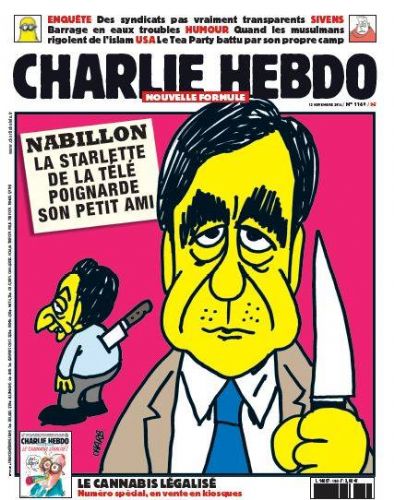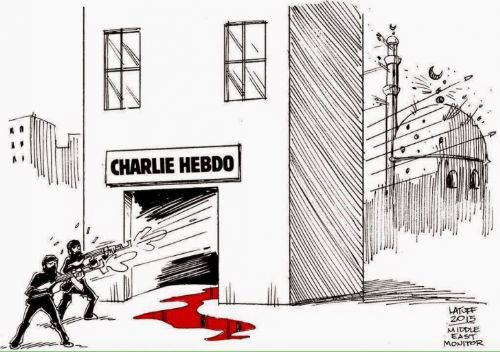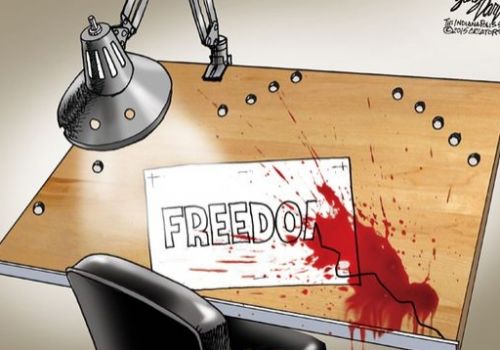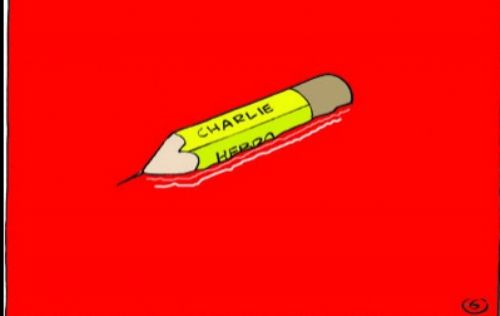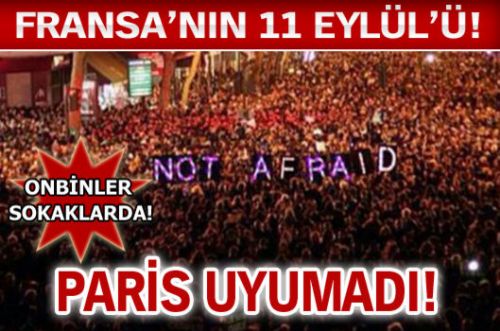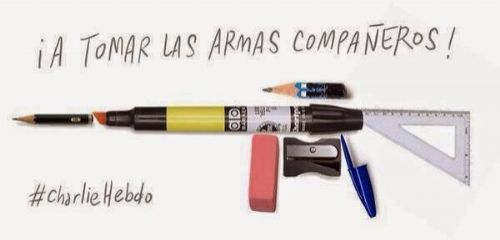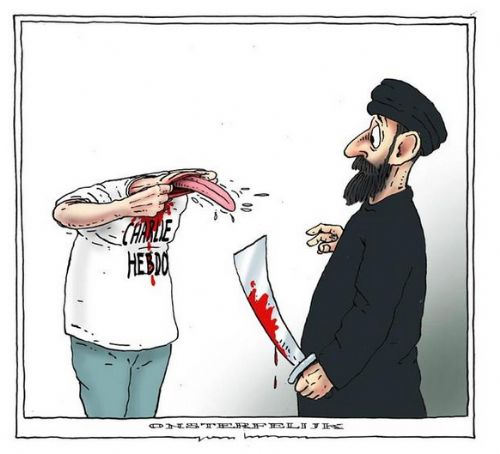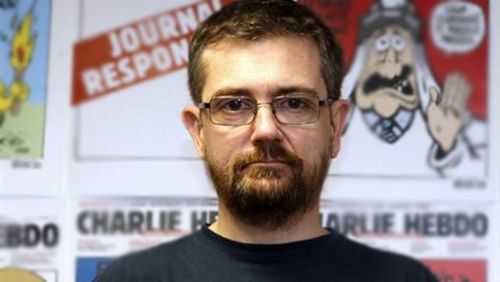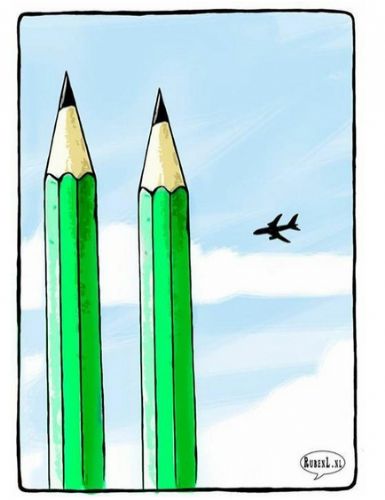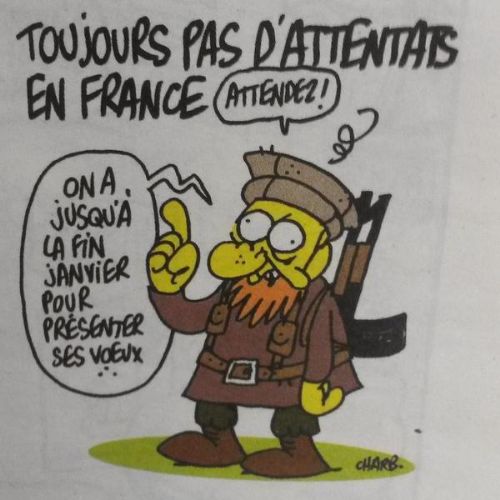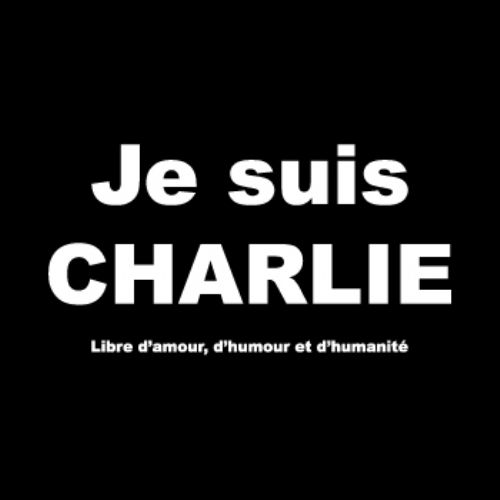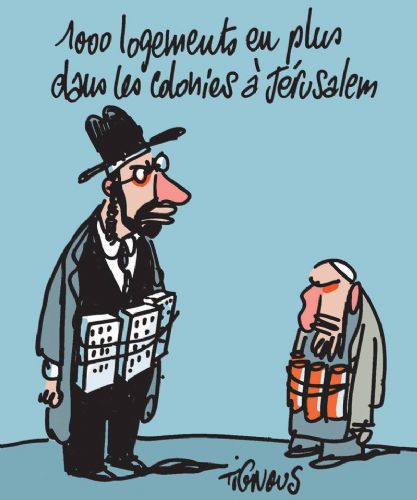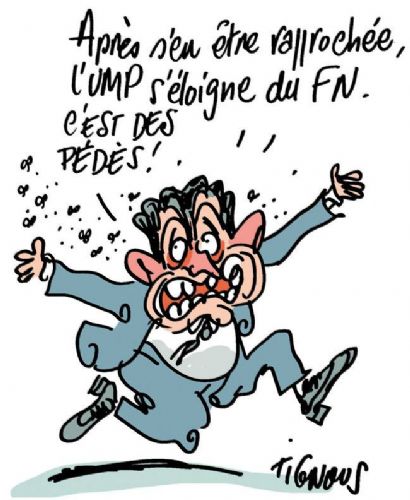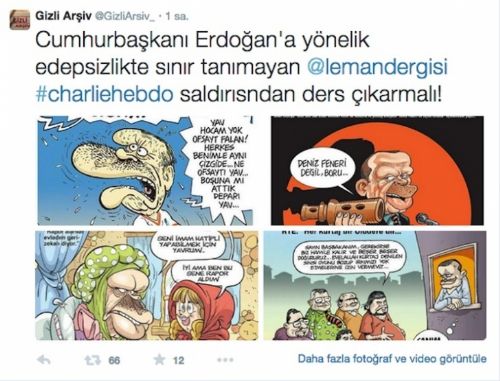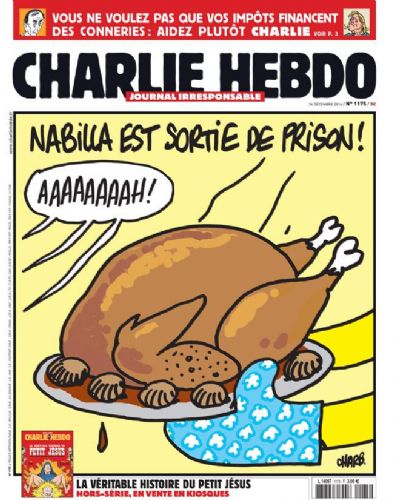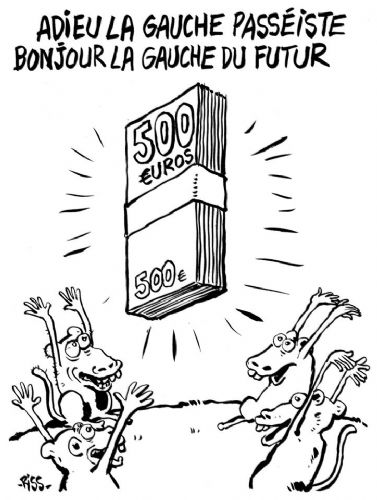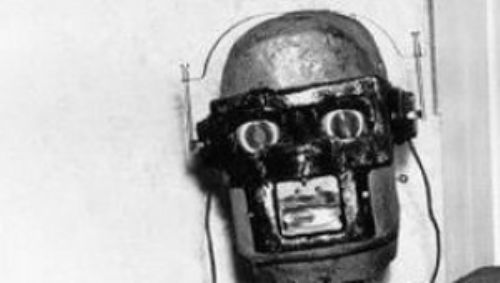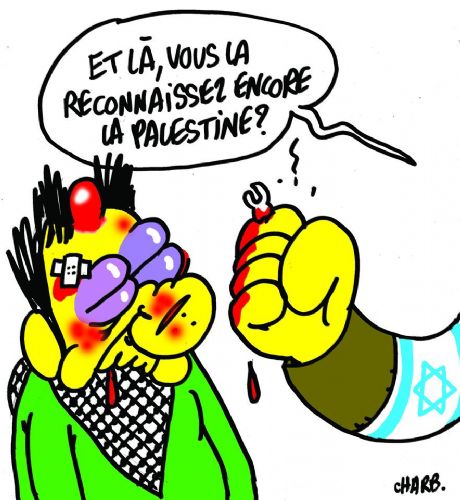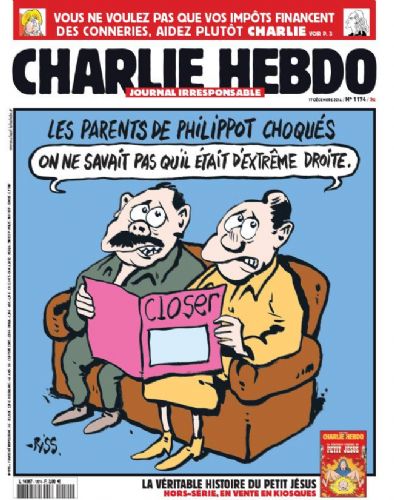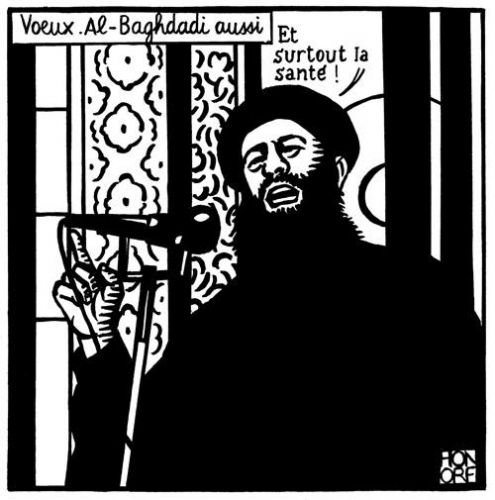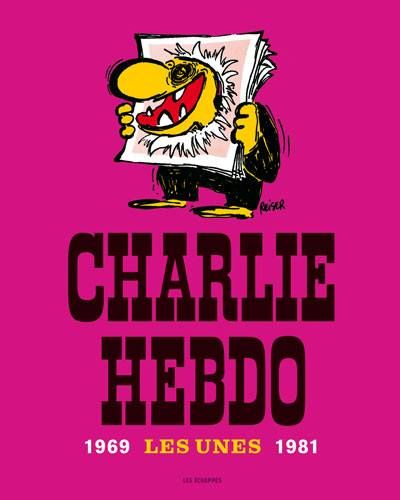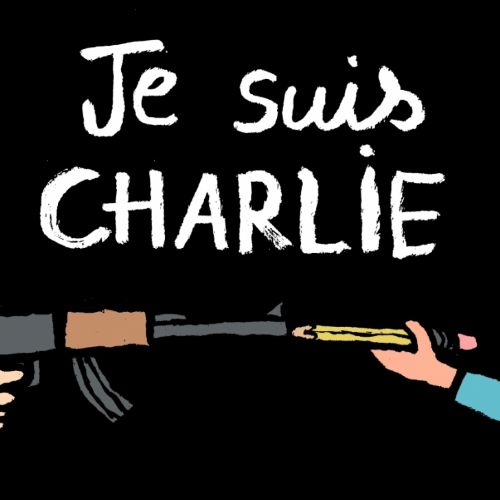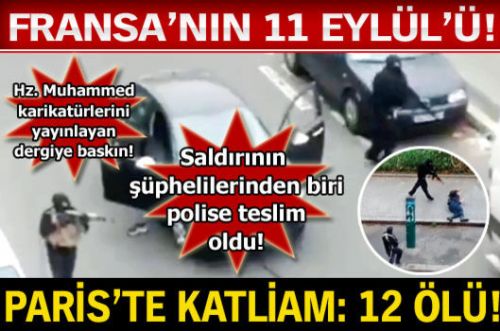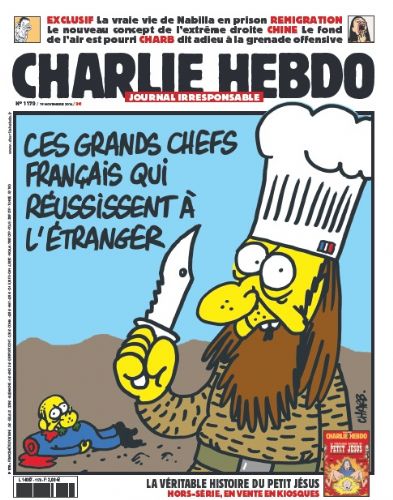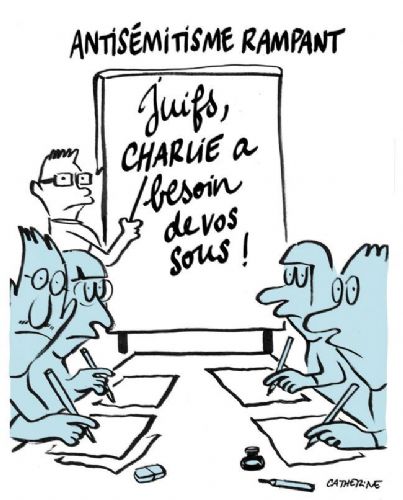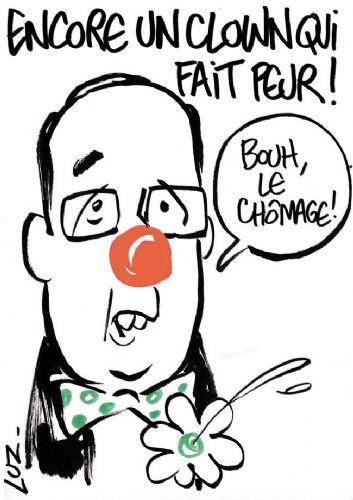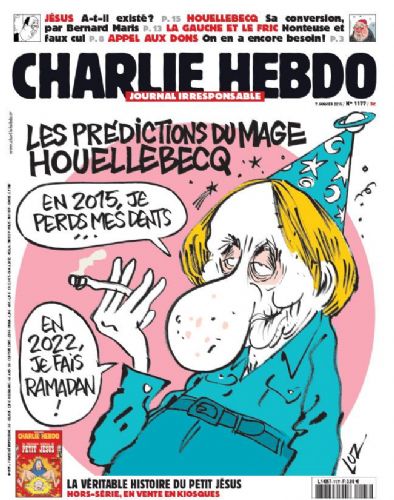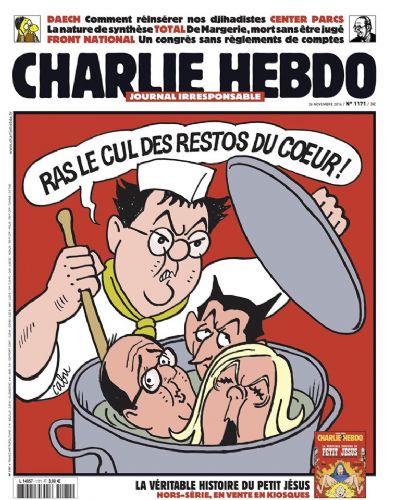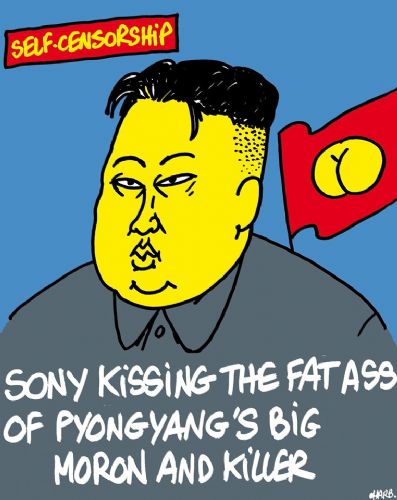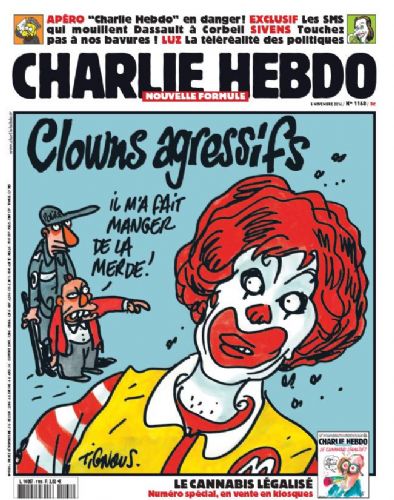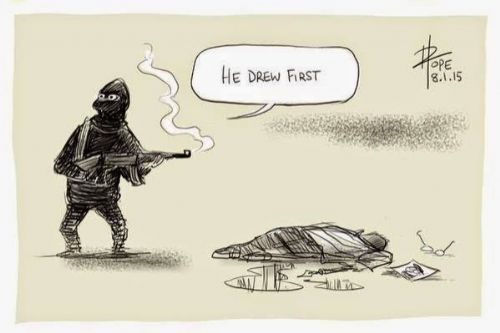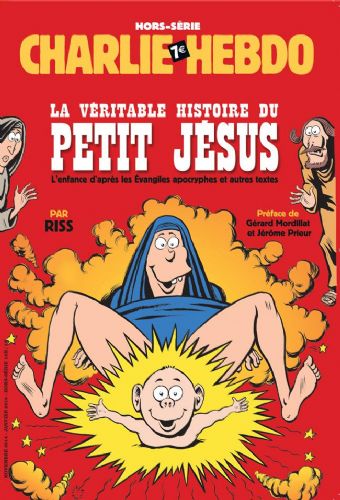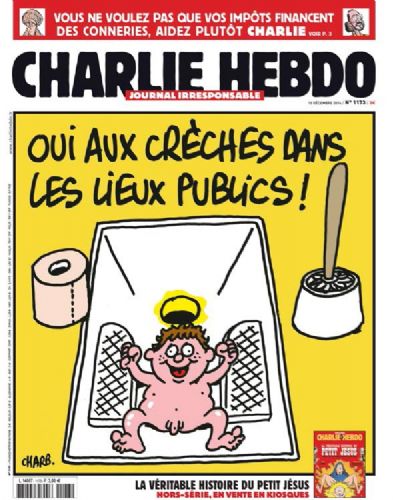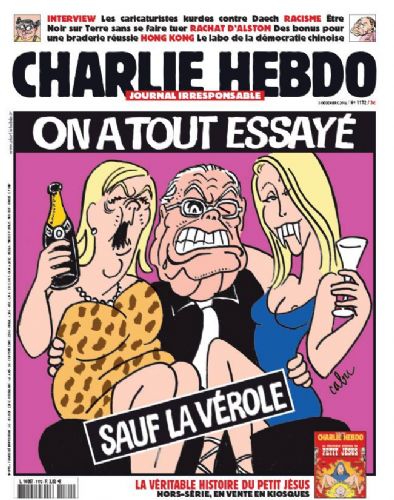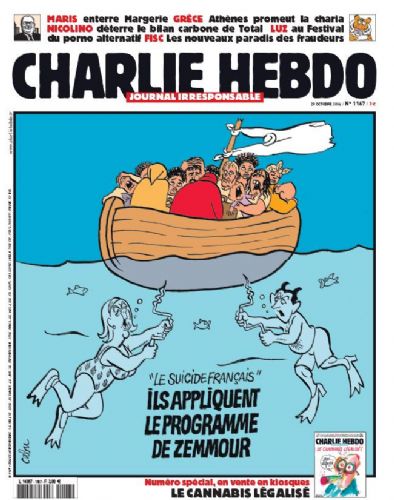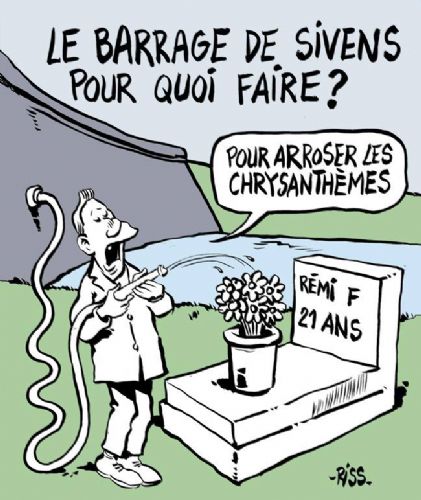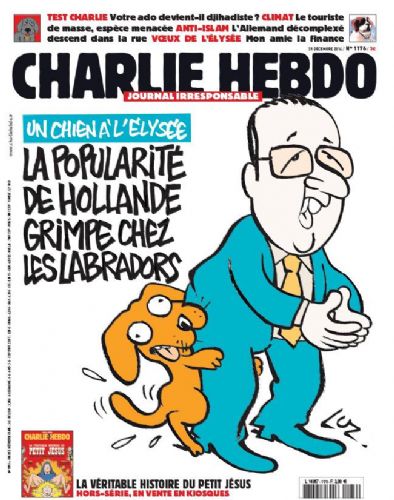Je suis Charlie
"Je suis Charlie"
(French for "I am Charlie") is
a slogan adopted by
supporters of free speech and freedom of expression after the 7 January 2015
massacre in which 12
people were killed at the offices of the satirical newspaper Charlie Hebdo in Paris,
France. It identifies a speaker or supporter with those who were killed at the
Charlie Hebdo shooting, and by extension,
a supporter of freedom of speech and
resistance to armed threats. Some journalists embraced the expression as a
rallying cry for the freedom of self-expression.
The slogan was first used on Twitter and
spread to the Internet at large. The website of Charlie Hebdo went offline shortly after the
shooting, and when it returned it bore the legend Je Suis Charlie on a black background. The statement was used as the hashtag#jesuischarlie and #iamcharlie on Twitter,] as computer printed or hand-made
placards and stickers, and displayed on mobile phones at vigils, and on many
websites, particularly media sites. While other symbols were used, notably
holding pens in the air, the phrase "Not Afraid", and tweeting
certain images, "Je Suis Charlie" is more widespread.
ORİGİN
The slogan was introduced in the form
of an image on Twitter by Joachim Roncin, an artist and music journalist for Stylist,
about one hour after the attack. Roncin says he made the image because he
lacked words.
The media has noted the similarity of
"Je suis Charlie" and the "I am Spartacus" scene in the
1960 Spartacus film.
Reaction to violence against journalists
Beyond
expressing sympathy for the victims, within hours of the attack the hashtag was
used by journalists discussing the issue of censorship and threats. Sophie
Kleeman of.mic wrote, "#JeSuisCharlie sends a
clear message: Regardless of the threat of hatred or violence, journalists and
non-journalists alike refuse to be silenced. As Charbonniersaid
in 2012, following the firebombing of his offices, 'I have neither a wife nor
children, not even a dog. But I'm not going to hide.'"
In the opinion of Gene Policinski,
chief operating officer of the Newseum Institute and senior vice president of the First Amendment
Center, the Charlie Hebdo killings were part of a string of recent
threats toward journalists and freedom of speech, following North
Korea's threats over
the controversial release of the film The Interview and ISIS's
executions of journalists. In his opinion, Policinski stated that instead of
being successful at silencing anyone, these attempts at censorship and the
Paris massacre have backfired and instead brought more awareness and support to
freedom of speech. "Ironically, such violence directed at journalists,
authors and others is recognition that free expression and the marketplace of ideas—enshrined
in the U.S. in the First Amendment—is a powerful weapon against tyranny",
he wrote; "For more than 220 years, in the U.S., the 45 words of the First
Amendment have defined the nation’s core freedoms of religion, speech, press, assembly
and petition. We now have another few words that will serve as a global means
of declaring those freedoms: #JeSuisCharlie."
Journalist Peter Bella wrote that more
than 100 reporters were killed "doing their jobs" in 2014 and that
"many were executed just because they were journalists." He said the
hashtag "was created to support Charlie Hebdo, the victims, and freedom of
the press, speech, and expression. I am Charlie. You are Charlie. We are all
Charlie."
Others use the hashtag #jesuisahmed (I
am Ahmed) to express solidarity with Ahmed Merabet, a Muslim police officer who
was shot in the attack on Charlie Hebdo.
After the hostage crisis at the kosher Hypercacher supermarket
in Vincennes on
9 January 2015, the Je suis
Hypermarcher slogan was
launched on an eponymous website. It
is reported that 4 hostages were killed in this incident. Presumably targeted
for their Jewish religion, people tweet the hashtag #JeSuisJuif ("I am
Jewish") in honor of the victims.
French far-right activists, including Generation Identity and National Front MEP Jean-Marie Le Pen, adopted the slogan "Je
suis Charlie Martel", in reference to the
Frankish king who defeated an Islamic invasion in
732 AD.
Ökkeş
Bölükbaşı, İstanbul – Ocak.2015 - okkesb@gmail.com,
http://www.medyagunebakis.com/ -okkesb@turkfreezone.com,
https://www.facebook.com/okkes.bolukbasi,
Ökkeş
Bölükbaşı, İstanbul – Ocak.2015 - okkesb@gmail.com,





